Residential Rents In Tehran Jump 50% In One Year
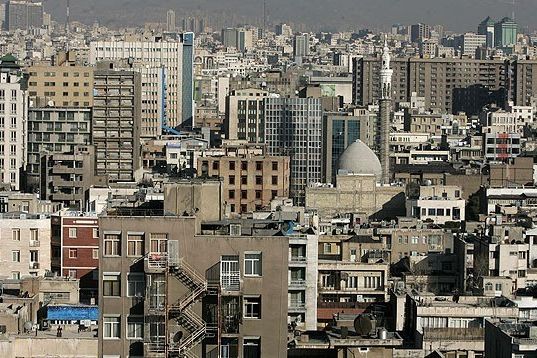
Rents in the capital Tehran have increased by more than 50 percent in one year amid a similar rate of inflation, surveys by the Central Bank of Iran indicate.

Rents in the capital Tehran have increased by more than 50 percent in one year amid a similar rate of inflation, surveys by the Central Bank of Iran indicate.
The average price of one square meter (11 sq feet) of a residential unit was estimated at about 330 million rials or about $1,200 in today’s exchange rate, which makes it practically impossible for an ordinary resident of the capital to earn enough money to buy any property with an average salary of less than $200 a month.
In fact, prices have remained constant since 2018 if calculated in US dollars, but Iranians earn rials, which has nosedived against other currencies. Real estate has remained a safe heaven to protect capital from devaluation.
Theannual inflation rate stood at 42.4 percent during December 21-Jaunuary 20. The annual rate is calculated based on a basket of prices for the year ending in each month compared to the previous 12 months.
Iran’s currency has fallen eightfold since early 2018, due to US sanctions while inflation has skyrocketed. Millions of working Iranian are now categorized as poor, with the middle class shrinking.
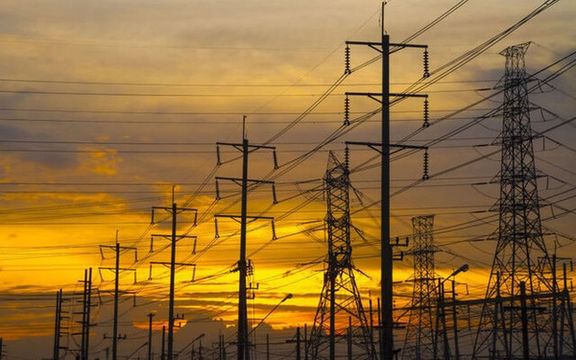
Saudi Arabia and Iraq have signed a memorandum of understanding on January 25 to connect their electricity grids, which can supply much-needed power to Iraq.
Baghdad relies heavily on Iranian electricity imports, while in addition, one third of its electricity comes from thermal power plants which use Iranian natural gas.
However, during last few years, Iran has always cut gas exports to Iraq in winters and curbs electricity deliveries in summers due to its own domestic shortages.
Iran has one of the cheapest energy prices in the world in what amounts to a huge subsidy of tens of billions of dollars for its citizens, who as a result have little incentive to save. Iran also suffers from lack of investments and technology to maintain its falling gas production. Some estimates say up to $40 billion is needed to upgrade production platforms.
Iraq says gas flows from Iran have decreased dramatically from about 50 million cubic meters per day (mcm/d) to around 8 mcm/d in recent weeks, as Iranian officials scrambled to feed power plants and prevent blackouts in the country.
Iran even cut gas exports to Turkey last week, forcing manufacturers to shut down or reduce production.
Perhaps the most important aspect of the Iraqi and Saudi deal is the fact that all Gulf Cooperation Council members (Oman, Qatar, UAE, Bahrain, Kuwait and Saudi Arabia) have already connected their electricity networks together, while Iraq completed its grid connection to Kuwait in November 2021.
This would allow Saudi Arabia to immediately deliver electricity to Iraq through Kuwait, without waiting for connection of its direct electricity grid to Iraq’s.
Saudi Arabia had also signed an electricity export memorandum of understanding with Iraq in 2018 to deliver 3,000 MW of solar power at $21 per one megawatt hour. The volume of this deal is three times larger than Iran’s electricity exports to Iraq and the price is only 30% of Iran’s rate for Baghdad.
Iraq also has other options to become independent from Iranian energy. It has signed several multi-billion contracts with international companies like Germany’s Siemens and United States’ General Electric to boost its electricity generation as well as natural gas production.
Regarding the dramatic growth in oil prices which have boosted income for Iraq’s government, it is expected that development of these projects would accelerate.
During the past 10 years, Iraq’s annual electricity generation capacity and gas production modestly increased by 12.3% and 4.8% respectively.
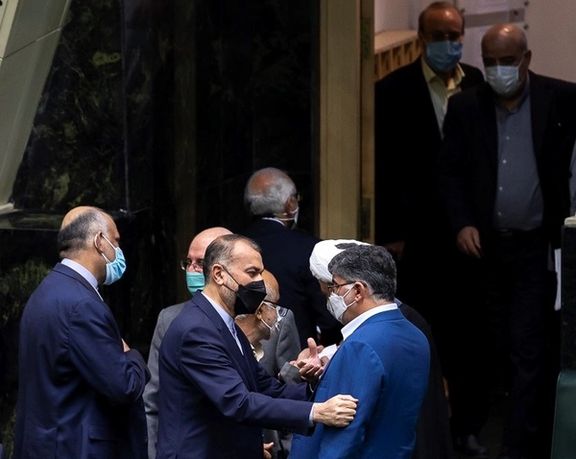
Iran’s Foreign Minister Hossein Amir-Abdollahian attended parliament on Wednesday to reassure lawmakers that so far, no direct talks have taken place with the United States.
The possibility of direct talks between Washington and Tehran has been a daily subject of media reports and speculations, as Iranian officials have changed their tone from past categoric rejections.
Mahmoud Abbaszadeh Meshkini, the spokesman for the National Security and Foreign Policy Committee of the parliament, said that Hossein Amir-Abdollaian attended the committee’s meeting to reassure MPs that no direct dialogue has taken place between the Iranian and US negotiating teams so far.
According to Meshkini, the foreign minister also answered questions about the ongoing talks to revive the 2015 nuclear deal, emphasizing that Iran is focused on the issue of guarantees and verifications for the removal of sanctions.
Amir-Abdollaian told lawmakers that some progress has been made but there are still issues that need to be discussed further.
Meshkini said that the West seeks to get concessions from Iran but only a win-win agreement is acceptable by the Islamic Republic.
“Iran wants a lasting agreement, and if it is permanent, it will be better”, Meshkini added, noting that the other side wants a temporary deal so they can withdraw from it whenever they want.
Tehran says it will not consider any interim arrangement, but recent reports suggest it is mulling the idea of direct negotiations with Washington.

Lebanese Interior Minister Bassam Mawlawi said Tuesday police had thwarted an attempt to smuggle large amounts of Captagon amphetamine pills around the world.
The minister said the drugs were on their way from Lebanon to the African nation of Togo, and from there they would have been sent to a Persian Gulf nation, most likely Saudi Arabia.
There have been many reports of the Lebanese Hezbollah being involved in the production and distribution of Captagon, through third countries to the Gulf Arab states. This has become a major source of income particularly after Lebanon fell into a serious economic crisis in 2019 and US sanctions put financial pressure on Iran, Hezbollah’s main financial backer.
The pills were hidden in 434 boxes, mixed in with seven tons of tea.
They were confiscated at sea after the smugglers sailed from Beirut’s port.
Captagon manufacturing thrives in Lebanon and war-torn Syria, which have become a gateway for the drug to the Middle East, particularly the Gulf.
Smuggling of Captagon pills has been at the heart of a spat between Saudi Arabia and Lebanon, after over five million pills hidden in a shipment of pomegranate from Lebanon were seized in the kingdom in April.
In retaliation, the Saudis banned Lebanese produce from going to or even transiting through the kingdom, a blow to Lebanon’s exporters.
With reporting by AP
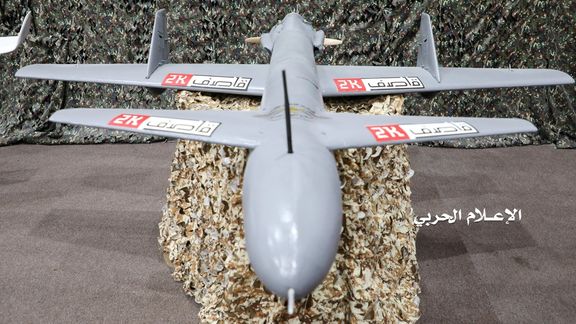
The United Arab Emirates may upgrade its defensive capabilities after missile and drone attacks by Yemen's Iran-backed Houthi group, a senior UAE diplomat said.
The UAE envoy to the United Nations, Lana Nusseibeh, told CNN on Tuesday that UAE intelligence showed the two assaults - the first on the regional commercial and tourism hub - had originated from Yemen, and there was also a need to stem illicit flows of weapons and funds to the group. Houthis had already claimed responsibility for the attacks
The envoy said UAE will also continue diplomacy with Tehran to reduce regional tensions.
A Saudi-led military coalition, which includes the UAE, accuses Iran of supplying the Houthis with arms, which both Tehran and the group deny. United Nations experts have determined that many weapons used by the Houthis have Iranian origin.
Iran has been expanding its military and intelligence presence throughout the Middle East for four decades but setting up a host of allies and militant proxies in the past decade it has created serious tensions with Saudi Arabia, Israel and other regional countries.
Monday's strike, aimed at a base in Abu Dhabi hosting US forces, was thwarted by American-built Patriot interceptors, after a deadly attack a week earlier on the capital.
Nusseibeh confirmed ongoing security discussions with Washington but declined to provide details. The UAE uses the US anti-missile interception system THAAD.
"Our ability to intercept and deflect these attacks is world class," she said. "There can always be upgrades and improvements and... additional intelligence cooperation and I think these are the fields we're looking at with our (U.S.) partners."
The Houthis said they are punishing the UAE for backing forces battling the group in energy-producing regions, after the UAE in 2019 largely distanced itself from Yemen.
She said the UAE, which has urged Washington to reinstate a terrorist designation of the Houthis, was also discussing with partners increasing pressure on the group to engage with stalled UN-led peace efforts. The Biden Administration removed the Iran-backed group from its terror designation immediately after assuming office one year ago, as it aimed to open talks with Tehran to restore the 2015 nuclear agreement.
"That means listing them again on sanctions regimes ... potentially listing additional figures, it means stopping the illicit flow of weapons and finance to them."
The Houthis have repeatedly launched attacks on Saudi Arabia in the war, seen as a proxy conflict between Riyadh and Tehran.
Nusseibeh said the Houthis would not succeed in undermining the UAE's safe-haven status.
The Houthi attacks come as Iran has been promoting a foreign policy aimed at improving relations with regional countries as an antidote to US sanctions that have crippled its economy.
The UAE, which has been engaging with Iran, would continue diplomacy aimed at de-escalation, she said, while reserving the right to defend itself "defensively and offensively" in the Yemen conflict.
With reporting by Reuters
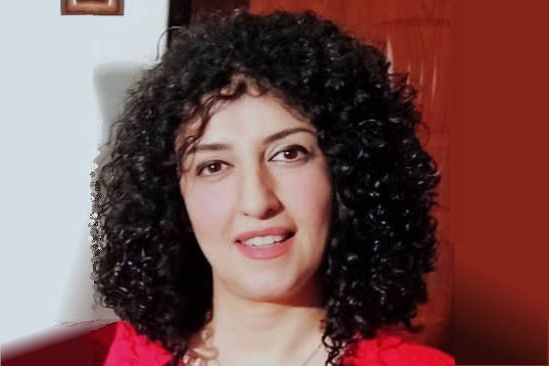
Iranian rights defender Narges Mohammadi said in a letter from prison that a court sentenced her to 8 years because she was nominated for the Nobel Peace Prize.
In her letter from the notorious Gharchak (Qarchak) Prison, obtained by Iran International, Mohammadi who has recently been sentenced to over eight years in jail and 74 lashes, said Branch 26 of the Revolutionary Court in its ruling has stated her nominationby the Norway branch of Amnesty International in March as evidence of her criminality.
"What reveals the hostility and baselessness of the charges [brought against me] and the legal procedure leading to the ruling is that I have been found guilty for being nominated by the Norwegian Amnesty for the Nobel Peace Prize," Mohammadi, a lawyer by profession, wrote in her letter from prison.
Mohammadi also said an official of the intelligence ministry had told her that her nomination was a "foreign conspiracy against the Islamic Republic" while she was still being held at at a special ward of Tehran’s Evin prison, run by the intelligence ministry.
In March 2021, the chairman of Amnesty International in Norway announced that two members of the Norwegian parliament had nominated the Iranian human rights activist for the Nobel Peace Prize, backed by the local Amnesty branch.
"I ask the heads of the Judiciary and Executive, was my nomination … an act against national security of the regime to warrant eight years in prison and 74 lashes and to be held [in solitary confinement] in a cell at the intelligence ministry wing [of Evin Prison] for 64 days?" she wrote.
Mohammadi who is lawyer often defending dissidents, also urged international rights organizations and the members of the European Parliament not to disregard the Islamic Republic's suppression of peace activists.
In her letter, Mohammadi said her trial took place after she spent time in solitary confinement without being allowed to have legal representation, any visits, or even being interrogated. "I was tried within five minutes in the absence of a lawyer and without having read the case files," she said, adding that she chose not to defend herself during the trial as she did not recognize the court’s legality and would not file for appeal.
According to Mohammadi, her sentence also includes a ban on living in Tehran, membership in political and social groups, any social media activities, and even having a mobile phone.
Mohammadi was arrested in November in mid-November at the death anniversary of a citizen, Ebrahim Ketabdar, who was shot dead by security forces during the November 2019 protests.
Mohammadi, who is the vice-president of the Defenders of Human Rights Association, the Chair of the executive board of the Peace Council of Iran, and a member of "Step-by-Step Abolition of Execution" campaign, has been to jail several times over the past two decades.
She was freed from Evin Prison in September 2020 after serving more than five years on trumped up charges, without due process of law. During her imprisonment she was deprived for long periods of any contact with her husband and children who live abroad.